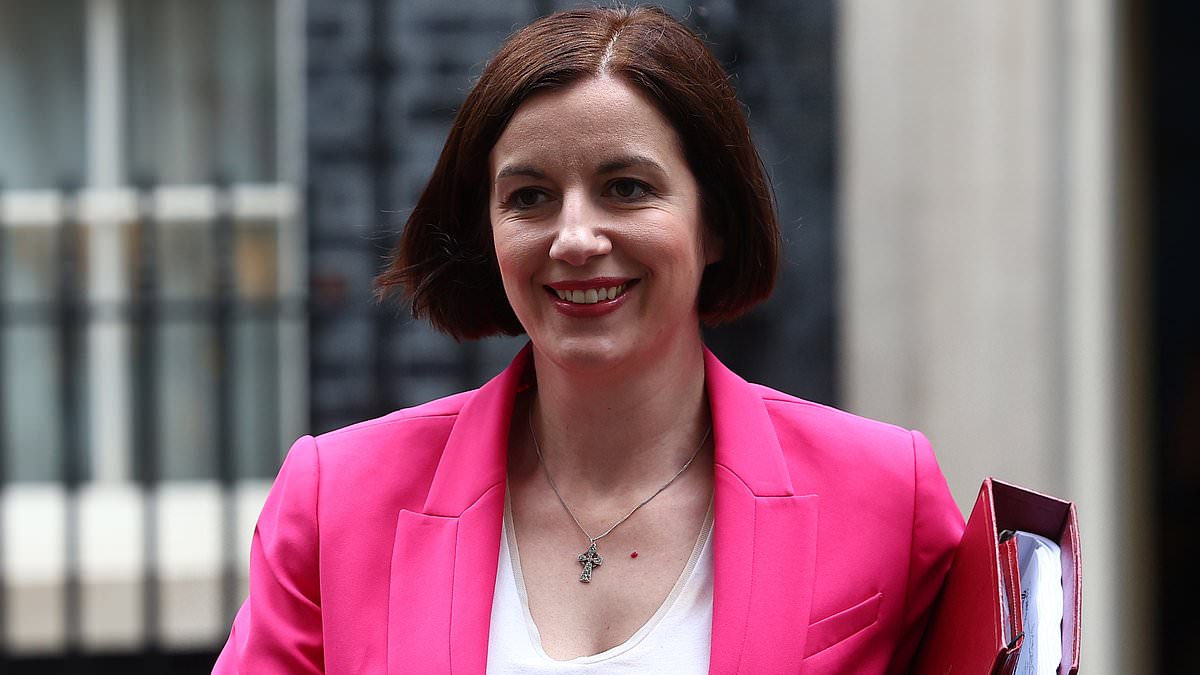The number of children with special educational needs plans surged by another 10 per cent in a year, official data has revealed.
According to figures from the Department for Education (DfE), there were 638,700 children and young people with an education, health and care (EHC) plan in January this year.
This was 10.8 per cent higher than in January 2024, when there were 576,474 children and young people with an EHC plan.
An EHC plan is a legal document that sets out what support a child or young person requires for their special educational needs.
The number of EHC plans has increased each year since their introduction in 2014.
This has increased the pressure on cash-strapped local councils, who are responsible for ensuring that all needs set out in an EHC plan are met.
Education Secretary Bridget Phillipson last week admitted the Government needed to ‘think differently’ about the system of EHC plans as it is ‘just not working’.
‘This is not about taking away support for families or children,’ she told MPs.
Ms Phillipson added: ‘It is about making sure that there is much earlier identification of need and that support is put in place much more rapidly, including ahead of any formal diagnosis.’
Further data published on Thursday showed 5.3 per cent of pupils in English schools now have an EHC plan, which is up from 4.8 per cent last year.
It also revealed there are now 1.28 million pupils in English schools who receive special educational needs (SEN) support without an EHC plan.
This was up by 3.7 per cent from 2024.
The most common type of need for those with an EHC plan is autistic spectrum disorder, DfE said.
And for those with SEN support it is speech, language and communication needs.
Funding for special educational needs and disabilities (SEND)in England is not allocated as a separate amount per pupil.
It is instead part of the overall ‘dedicated schools grant’ allocated to each local authority.
Council leaders have warned they are facing ‘unmanageable’ SEND deficits, which has left many town halls facing bankruptcy over the coming years.
Parliament’s spending watchdog has also criticised the ‘chaotic’ system for accessing SEND support in damning report earlier this year.
A wide variation in waiting times for EHCPs across the country has been branded a ‘postcode lottery’.
Dame Christine Lenehan, DfE’s strategic adviser on SEND, last month said the Government is ‘considering whether EHC plans are the right vehicle to go forward’.
She told Tes magazine: ‘They were introduced in 2014; is this the right system for supporting children’s needs?’
Dame Christine also told a panel event at the Schools and Academies Show that reforms would be about changing ‘the bureaucratic nightmare we seem to have got ourselves into, which is actually unhelpful and doesn’t deliver the outcomes for children that we want’.
She said: ‘It started off in 2014 as a system for a very small group of children, children who actively needed the engagement of health, care and education in order to meet their outcomes.’
Dame Christine said the system has ‘expanded and expanded’ and suggested that most pupils with an EHCP in place ‘don’t need health and care, they need a really good, focused education’.
‘We need to really think about that because local authorities… are spending huge amounts of money to develop plans that schools then can’t implement and that make no sense to anyone,’ she added.
‘Part of what we are looking at here is a system that is financially bankrupt, but also a system that does not deliver the best outcomes for children, and parents are caught in the middle of it.’
In April, Reform UK leader Nigel Farage clashed with charities as he claimed family doctors are ‘massively over-diagnosing’ children with special educational needs and disabilities.
During a press conference in Dover, Kent, Mr Farage bemoaned an overdiagnosis of ‘those with mental illness problems and… other general behavioural disabilities’.
The Reform leader said: ‘So many of these diagnoses – for SEND before 18, for disability register after 18 – so many of these have been conducted on Zoom, with the family GP. I think that is a massive mistake.’
But charity bosses condemned the Reform leader’s comments as ‘wildly inaccurate’.
Mel Merritt, head of policy and campaigns at the National Autistic Society, said: ‘For the record, absolutely no one has got an autism diagnosis through the GP – this is just incorrect, wrong, fake news.
‘Children with SEND and disabled adults, including autistic people, are not victims who are being ‘over diagnosed’.
‘They are people who face huge delays and long fights to get the most basic support across every aspect of their lives, including diagnosis, education, health and social care.
‘Spreading misinformation only perpetuates stigma and makes life harder.’
